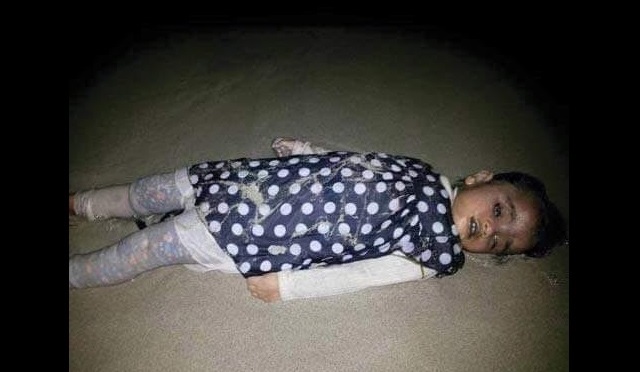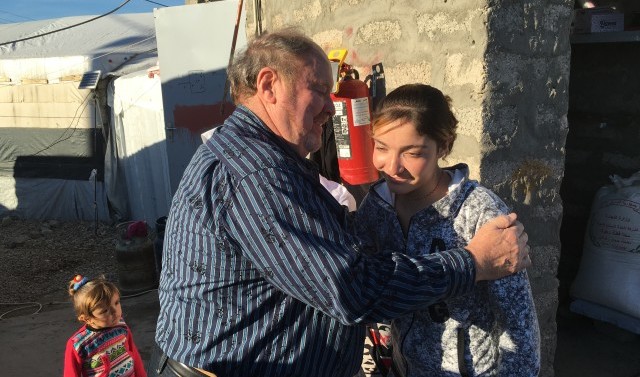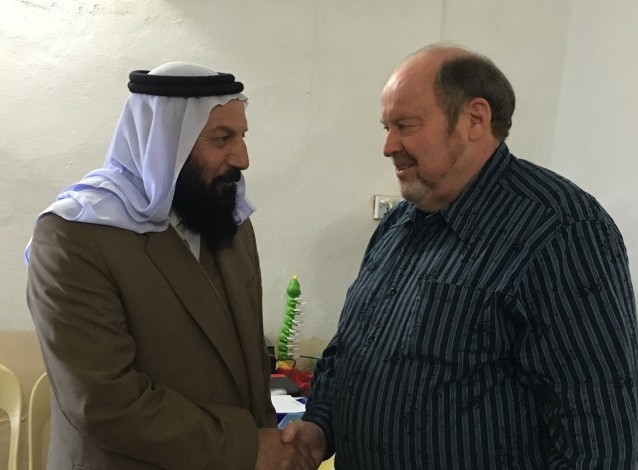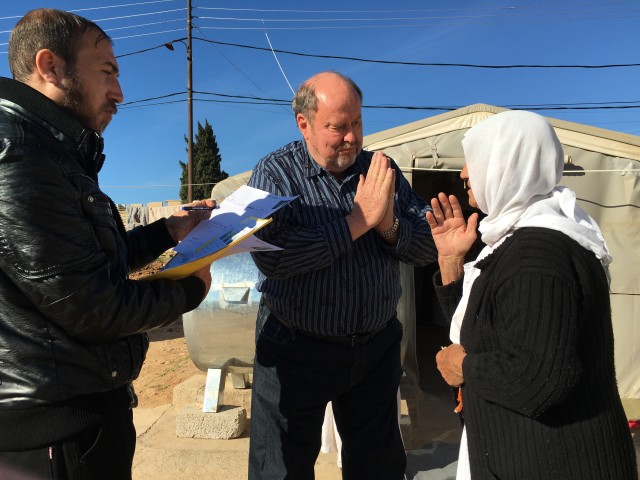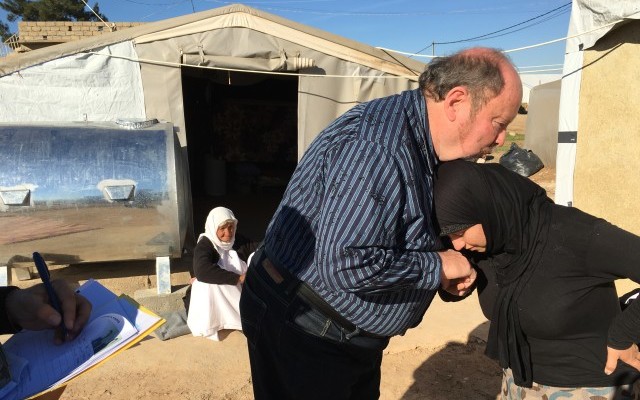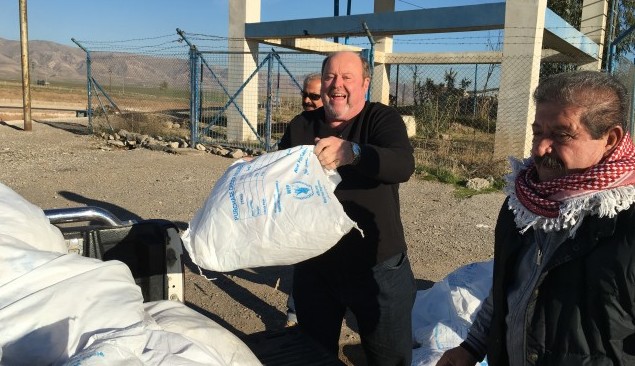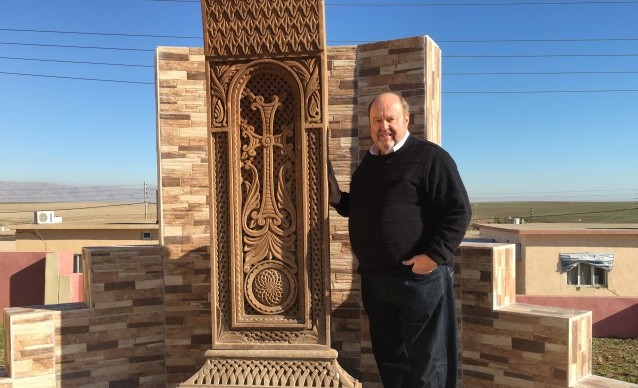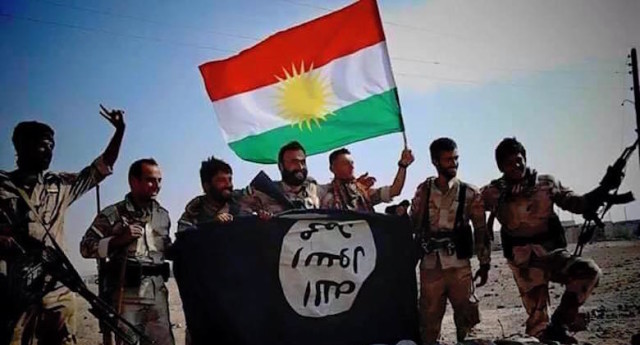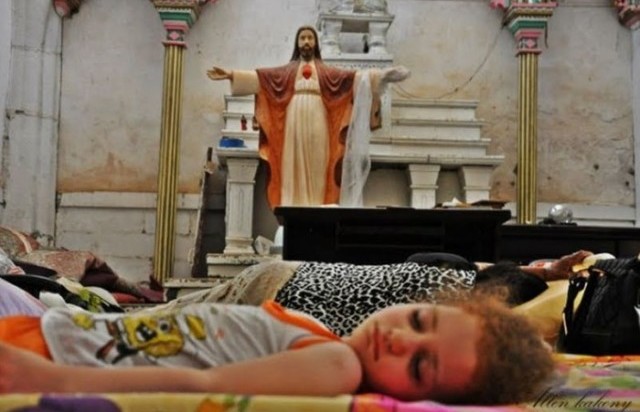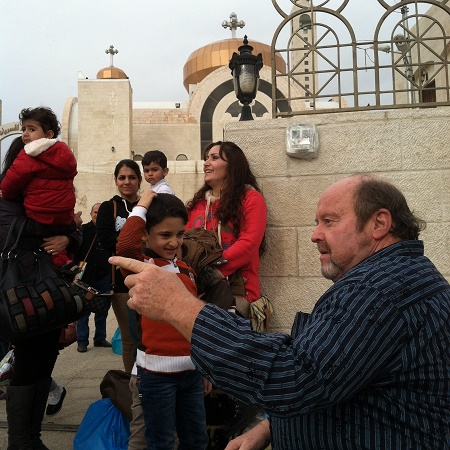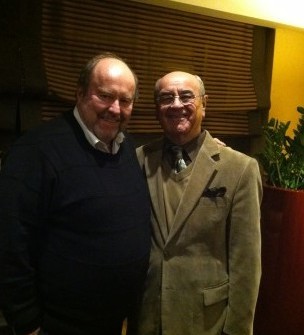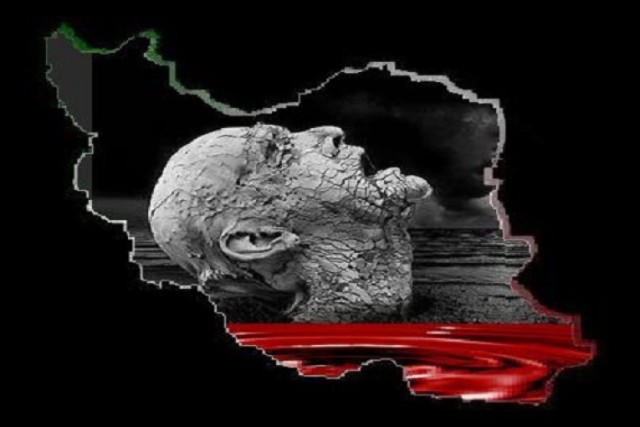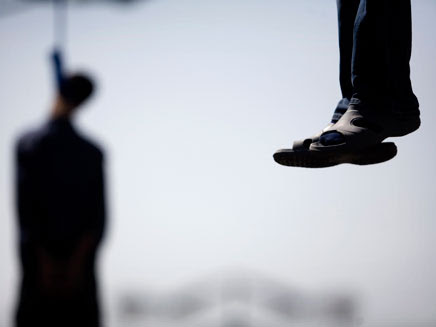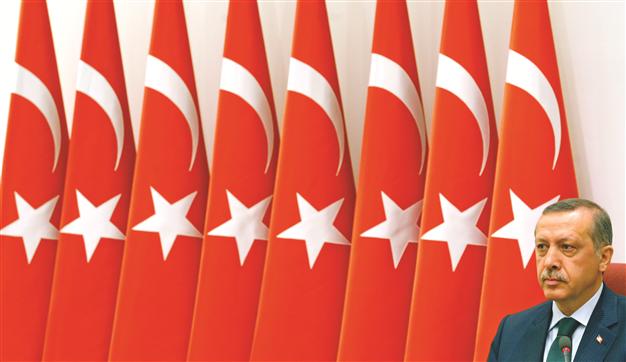On the morning of November 13, 2015 combined Peshmerga and Yazidi forces, with U.S. Special operators and USAF tactical support, successfully cut off the occupied city of Sinjar in northern Iraq. This action blocked Highway 47, the strategic line of communications between the Islamic State self-declared Caliphate capital in Raqqa, Syria from Mosul.

Gen. Audino in Peshmerga Uniform
U.S. Army Brig. Gen. (ret.), Ernie Audino knows the Peshmerga from practical experience. He was embedded with them for a year in 2006 as the commander of a small team of combat advisors. He knows that ISIS’ aim is a global Jihad insurgency. Speaking on the November 15, 2015 Lisa Benson Show on National Security, he called Sinjar a “decisive victory” by 7,500 Peshmerga and 6,000 armed Yazidis. He told the program listeners that the Kurds had “rolled up 28 villages retaking 200 kilometers of terrain.” The combined Peshmerga and Yazidi forces were assisted, he said, by “40 USAF strikes inside the city.” The combined force, Audino said, had cut off “600 ISIS fighters, resulting in 300 dead” against a few dozen Peshmerga casualties.
Thus ended a 15 month barbaric occupation of the largely Yazidi city, seized in August 2014 with a thousand men killed and buried in mass graves, thousands of women treated as chattel and sold as sex slaves and children enslaved as well. Thousands fled to Sinjar Mountain and were relieved by Kurdish PKK and Syrian Kurdish YPG forces which retook Sinjar Mountain in December 2014. The seizure of Sinjar by ISIS caught the Peshmerga off balance. They faltered in defense of the city because of alleged inadequate command and control. The Guardian report on the re-conquest of Sinjar, noted what a senior Kurdish official said:
This shows what we can do. We acknowledge the failings of last summer [2014], but they were command and control issues and they have been sorted out. The Americans know that we are reliable and that the Iraqi army still isn’t. But if they want us to take Mosul, it will be on our terms. We are not agents. And we are not naive.

KRG President Masud Barzani, Sinjar, Iraq, November 13, 2015
The recapture of Sinjar on November 13th was a fulfillment of a promise by the Peshmerga, reflected in the comments reported by The Guardian of KRG President Masud Barzani at a news conference held at a sandbagged site overlooking the reconquered city:
On this day I announce to the people of Kurdistan the liberation of Sinjar. We promised and we keep our promises: we proved to our Yazidi brothers and sisters that all Kurdistan is behind them. Today we took revenge for every Yazidi.
It was the seizure of Mosul in June 2014 and flight of Yazidis from Sinjar which prompted President Obama to declare on September 10, 2014 “to degrade and destroy” ISIS through a strategy of air assaults on targets in both Syria and Iraq. At the time Obama said:
I have made it clear that we will hunt down terrorists who threaten our country, wherever they are. That means I will not hesitate to take action against ISIL in Syria, as well as Iraq. This is a core principle of my presidency: if you threaten America, you will find no safe haven.
Obama was employing a small complement of U.S. special operators in concert with local boots on the ground and has been criticized by Congressional leaders and others, including former Defense Intelligence Agency chief, US Army Lt. Gen. (ret.) Michael Flynn and former Central Command commander (ret.) Marine General Anthony Zinni. The generals accused Obama of not pursuing an effective strategy for they had in mind the 160,000 Iraqi Kurdish Peshmerga and the 25,000 Syrian YPG Kurds who had relieved the siege of Kobani in January 2015.
Both Secretary of State Kerry and President Obama issued statements a day prior to the Sinjar operation on November 13th reflecting a myopic attitude the Administration’s ISIS strategy was indeed working. Reuters reported:
U.S. Secretary of State John Kerry expressed confidence Sinjar would be cleared in days.
President Barack Obama said he was focusing on shrinking and constraining Islamic State in Syria and Iraq but acknowledged that problems with the group would continue until the Middle East stabilizes.
“Our goal has to be militarily constraining ISIL’s capabilities, cutting off their supply lines, cutting off their financing,” he told ABC News.
On the evening after the Sinjar victory in Iraq, November 13th, events in Paris were to devastate the President’s assessment. ISIS trained Belgian and French born operatives using Kalashnikov assault rifles and grenades killed 130 innocent civilians, injuring more than 352, 99 seriously. They perpetrated suicide bombings at a French soccer stadium, random shootings of patrons at outdoor cafes, and hostages held at a concert hall. France and the world were devastated by this ISIS attack. French President Hollande called it “an act of war” by the self-declared Islamic State. The alleged mastermind of the ISIS massacres was subsequently killed along with a female cousin and a third unidentified suspect in a massive shootout by French police who assaulted a safe house on November 18th in the predominately Muslim suburb of St. Denis, north of Paris. French President Hollande and President Obama at a White House Press Conference on November 23 declared their solidarity endeavoring to destroy ISIS.
Gen. Audino in a Washington Times op-ed in mid-October 2015, just prior to the events in Sinjar and Paris, called attention to the Administration’s “timidity” in supporting the Kurds, saying:
The Kurds, longtime U.S. ally and the undisputed main effort in the war against ISIS, are running low on battlefield supplies.
“In the past four to five months we have not received a single shipment of military supplies from the USA, not small arms ammunition, which we desperately need, not counter-IED equipment and not medium or heavy anti-tank weapons. We’ve repeatedly asked for Javelins, in particular, and received nothing from the USA,” said a senior source in the Kurdistan Regional Government (KRG) in Iraq.

President Masud and KRG delegation meet President Obama May 2015
On the November 15th Lisa Benson Show, Audino said “very little gets through. No supplies have been sent since May.” That shipment followed a meeting between a delegation headed by President Masud Barzani of the KRG with President Obama and his National Security Staff. At that time Congressional leaders were including requests for direct supply of these requested arms and equipment, in drafts of the 2016 National Defense Authorization Act. They wanted to avoid relying on the equipment being filtered through the national Iraqi military of the Al –Abadi central government in Baghdad. In the aftermath of the seizure of both Sinjar and Mosul in June and August 2014, the KRG fielded the additional burden of sheltering 1.8 million internally displaced Yazidis, Chaldean Christians and other non-Muslim religious minorities. Moreover, the Al-Abadi government had not met the payroll of the Peshmerga for several months and had virtually reneged on remitting a fair share of oil revenues. Gen. Audino’s comment in his Washington Times op ed was:
To date our tethering of Peshmerga logistics to the whim of the Iraqi Army in Baghdad has been an unmitigated failure. Very little is delivered into the hands of the Kurds, and the vast bulk claimed by the Iraqi Army has been lost on the battlefield.
Irbil will enthusiastically welcome this change in U.S. policy, and we should, too, but Moscow, Tehran, Damascus and Baghdad will not. That should tell us something.

Gen. Audino with President Bush.
Against this background we invited Gen. Audino for this interview. Gen. Audino is a native of Cape Cod and a 1983 graduate of the US Military Academy at West Point. He retired after 28 years of active service in 2011. He served multiple assignments in armor, cavalry, infantry and Stryker units. Other key assignments include service as an Army Congressional Fellow in the US Senate, duty as the Executive Assistant to the Vice Chairman of the US Joint Chiefs of Staff, and Director of Nuclear Support at the US Defense Threat Reduction Agency. His last assignment was as the Deputy Director of Operations for Headquarters, US Army, in the Pentagon.
He earned a Master’s Degree from the National War College. General Audino’s introduction to the Kurds, their language, history and culture resulted from his time at the National War College where he studied under US Ambassador to Croatia and Assistant UN Secretary General, Peter W. Galbraith. Ambassador Galbraith has been a diplomatic and financial adviser to the KRG and is a proponent of Kurdish independence. Audino subsequently received both a Juris Doctorate and a Masters in Law, cum laude, from Vermont Law School.
He commanded a detachment of US Army combat advisers embedded in 3rd Infantry Brigade, 4th Division Iraqi Army. His brigade was formed entirely from Kurdish peshmerga (guerrilla units) re-missioned to conduct counterinsurgency operations with Kurdish Peshmerga forces in 2006. Gen. Audino is a Senior Military Fellow at the London Center for Policy Research. He also serves as Senior Advisor to the Kurdistan National Assembly of Syria and is on the Board of the Kurdish Human Rights Watch. He simultaneously serves as SVP of Military Market Development for Raydon Corporation, a world leader in state-of-the-art virtual training capabilities for domestic and international defense and security forces. He is a frequent contributor to the Washington Times and has appeared on FoxNews, the Hugh Hewitt Radio Show and the Lisa Benson Show on Salem Media network.
Jerry Gordon: General Audino thank you for consenting to this interview.
Gen. Ernie Audino: Thank you for inviting me.
Gordon: Who are the Kurds and where are they located in the Near East?
Audino: The Kurds reside across a mountainous, contiguous zone stretching across four countries; Iraq, Iran, Syria and Turkey. Without the benefit of a modern census, their numbers must be estimated. Roughly 7-9 million live in the north of Iraq, 5-7 million in Iran, 2-3 million in Syria and 20 million in southeastern Turkey. Those numbers are close but certainly open for debate.
They are commonly described as the largest ethnic group without a nation of their own. They speak an Indo-European, not a Semitic, language and they are generally considered closer to a European bloodline than to any other. They overwhelmingly identify by their ethnicity, first, and everything else second. That is an anomaly in the Gulf, where all other major groups tend to identify first by religion. Kurds are proudly Kurdish.
This is an important point, because in my experience living with them in the mountains of Iraq and operating with them on the battlefield, this has helped make them enormously accommodating. The open practice of multiple religions, for example, is no issue in Kurdistan. Most Kurds are Muslim, but many are Christian, Yezidi, Kakai, Zoroastrian and other pre-Christian religions. There are Kurdish Jews, too. That ethnic and religious minorities in Iraq flee to the Kurdish region for safeguard is telling. No one flees to Baghdad!
Having said that, Kurdish history goes back thousands of years and is marked by a stubborn refusal to submit. The Sumerians couldn’t subdue them. Nor could the Akkadians, and the King of Uruk referred to them as the Stinging Serpent of the Hills after struggling with them in an effort to secure his routes to the sources of important metals essential to his regime. Also, Xenophon in his Anabasis, the chronicle of the 10,000 Greeks in the Persian Expedition, described their passage through the Zagros Mountains and said they lost more men in a week fighting the Kurds there than in the next three months fighting the Persians.
Gordon: During the Versailles treaty discussions that ended World War I, the Kurds were promised an independent country of their own. What happened to deny that?
Audino: The short answer is the Turkish government subsequently refused to accept it. This was expressed through the Treaty of Lausanne, 1923, which functionally put an end to the promised notion of an independent, sovereign state for the Kurds.
Gordon: After WWII, the Russians established a short-lived Kurdish Republic in Mahabad, Iran, who among Kurdish leaders was involved and what caused its demise?
Audino: Tehran caused its demise.
So long as large numbers of Soviet troops remained on the ground in Iran at the time, 1946, the conditions were favorable for the realization of the Kurdish dream, an independent state of their own. When Iranian troops were pushed away from the Kurdish-populated city of Mahabad, the time was ripe. The well-educated and well-respected Qazi Muhammad was elected to serve as president of the Mahabad Republic, history’s first and only sovereign, Kurdish state. Knowing he needed a capable army to protect the state he requested help from the great Kurdish nationalist, Mustafa Barzani, who showed up with 5000 of his peshmerga. During this period, a son was born to Barzani who named him, Masud. That son is now Masud Barzani, the current President of the Kurdistan Regional Government (KRG) in northern Iraq.
The Soviets couldn’t stay forever, and when they pulled out the Iranian troops moved in. Qazi Mohamed stepped forward and offered his life to save the residents of the city. Iranian troops seized Mahabad on 15 December, 1946. The Republic had lasted exactly one year. A few months later on March 31, 1947 Qazi Mohamed was hanged above Mahabad’s central square, Chwar Chira.
Gordon: From the 1950’s to 1970’s Iraqi Kurds engaged in a covert war against the regime of Iraqi Dictator Saddam Hussein. Who supported that and why did it end?
Audino: Actually, the Kurds have fought against successive regimes based in Baghdad since well before the 1950’s. Kurdish Shayk Mahmoud, for example launched his famous rebellion in 1919 to oppose the repressive, foreign rule of Baghdad over Kurdish affairs. The Brits held the Mandate over the Kurdish north at the time, so he fought them, too, and humiliated a British brigade sent to remind him who was boss in May of 1919. The Brits came back some weeks later with an entire division, including airplanes, and pinned him back, but the blood-deep, Kurdish tenacity to refuse to submit continued. It was a factor underlying the so-called First Kurdish Revolution in the early 1960’s and continued through the wars of the 70’s and 80’s.
US covert aid funneled through the Shah of Iran helped supply the Kurdish operations against the Ba’athists when they began coming into power in the late ‘60s. By 1970 these operations were tying down significant portions of Ba’athist combat power, and Saddam Hussein was induced to propose a cease-fire. Known as the 1970 Agreement it purported to offer the Kurds what they wanted, autonomy, in exchange for a cessation of hostilities. The agreement began unraveling almost as soon as it was signed. Open warfare resumed and continued until 1975 when the US brokered the signing of the Algiers Accord, wherein Saddam conceded claims to disputed portions of the Sha’at al Arab in exchange for the Shah’s cessation of support to the Kurdish peshmerga in Iraq. The Kurds consider this one of their great betrayals.
Gordon: During the Iran Iraq War of the 1980’s the Kurds opted to support Iran, how did that turn out?
Audino: Widespread guerilla operations by the peshmerga during this period tied down an estimated 25% of the combat power available to the Iraqi Army. These were resources Saddam would have preferred to employ directly against Iran. By 1986 or so the fortunes of Saddam’s war with Iran began to tilt in his favor. As he gained freedom of maneuver against the Iranians, he was able to begin turning his sinister attention north. He intended to use the opportunity to eradicate his Kurdish problem once and for all and then subsequently disengage his combat power from the Kurdish north and add it to his operations against the Iranians. His effort to complete the destruction of his Kurdish threat became nothing less than a state-sponsored, genocide against the Kurds. Saddam named it, Operation Anfal, after the 8th Sura of the Koran, The Spoils of War. It led directly to the destruction of 5000 Kurdish villages, the sowing of 7 million landmines into Kurdish soil, the construction of dozens of Kurdish concentration camps, the gassing of at least 48 Kurdish towns and the deaths of a minimum of 200,000 Kurdish people.
Gordon: When did the US and allies establish a no fly zone in Iraq and how did that assist in establish the autonomous Kurdish Regional Government?
The northern no-fly zone was established in 1991 to protect the Kurds. The signing of the Cessation of Hostilities on March 3, 1991 between Coalition Forces and the Iraqi Ba’ath Regime failed to expressly bar Iraqi future use of armed helicopters. Consequently, Saddam chose to employ them to quash the Kurdish uprising that ensued after the ceasefire. As Saddam’s armed helicopters bore down on Kurdish villages, millions of Kurds fled toward the Turkish border. Barred from crossing into Turkey the Kurds were trapped out in the open, suffering in the snow and under threat of attack by Iraqi helicopters. The no-fly zone put a halt to that.
Within a year the Kurds had formed a parliament and supporting ministries to begin administering their new autonomy. The Kurdish region has since lifted itself from the ashes of genocide to become the most peaceful, the most democratic, the most prosperous and the most beautiful portion of Iraq.
Gordon: What is the political makeup of the KRG and its relationships with the central government in Baghdad and adjacent countries, Iran, Syria and Turkey?
Audino: The Kurdish political landscape in Iraq is dominated by the two, traditional Kurdish parties, the Patriotic Union of Kurdistan (PUK) led by the Talabani family and the Kurdistan Democratic Party (KDP) led by Masud Barzani. The membership of the PUK largely corresponds to Sulaymani Province and the surrounding eastern areas of the Federal Region of Kurdistan in Iraq, and the membership of the KDP largely corresponds to the western areas, including the KRG capitol of Erbil.
Both parties have an important interest in the maintenance of a working relationship with Baghdad, but both remain rightly cautious given the history of repression and betrayals directed from there at the Kurds over the past several generations. These parties also share important interests in fundamental issues common to all Kurds; peace, human rights, democracy, free practice of religion, free speech, safety, public service, common defense, education, prosperity, etc.
Each party has its own individual interests, too, of course. The KDP tends toward closer, albeit pragmatic, relations with Ankara, given that geography makes them neighbors. The PUK tends toward closer relations with Tehran, as the PUK’s base in Sulaymani sits physically close to the Iranian border.
In the last few years a group splintered from the PUK and formed a reform movement named, Goran, Change. It is strongest in the PUK’s political base area of Sulaymani, and tends to attract a younger demographic of Kurdish society. It is generally considered closer to Iranian interests.
Gordon: When did you serve as US Combat Advisor to the Kurdish Peshmerga and what was your experience?
Audino: I served with the peshmerga for all of 2006, the busiest full year of Operation Iraqi Freedom, and I regard it as the most significant assignment of my career. We lived with them and we operated with them. Their families opened their homes to us. They welcomed us like brothers. We were invited to their weddings. We ate in their homes, and mothers and wives even occasionally sent us out the door with food for a mission. Frankly, my time with the Kurds changed the second half of my life. I am now on a mission to help bring the merits of the Kurdish story of struggle to an American audience that sadly knows too little of these remarkable people and trusted allies.
But I must give tribute to the twenty-two peshmerga we lost from our brigade that year and the sixty wounded. I attended most of their funerals, and in every case I was welcomed into the mosque and seated next to the mullah. Grieving family members frequently approached me to express their gratitude that an American was in attendance at the funeral. One man told me his brother, who had been killed in Balad, kept an American flag in their home. Another young man told me his father, who also died on the battlefield, kept a photo of President Bush on the wall of their home.
If I was given the opportunity to do one military assignment again, my choice would be to go back to serve another assignment with the Kurds.
Gordon: How significant is the Peshmerga force and its legendary fighting prowess?
Audino: Let me put it this way…there simply is no war against ISIS without the Kurds. That’s significant, to say the least. Their peshmerga provide the undeniable main effort in this fight, a war I refer to as the War to Defend Humanity. They are the only ones consistently seizing terrain from ISIS and holding it. We can all be thankful the Kurds stepped forward to secure Kirkuk at the same time the Iraqi Army was running away from Mosul, because had they not, Kirkuk would today be part of the Islamic State.
So, the peshmerga have the ability, sure, but what they really have is the Will. I’ll take a unit with Will over a unit with ability any day of the week. Unfortunately, low levels of equipping and limited resources are constraining the peshmergafrom achieving their full ability, their full combat power, so to speak. The Abadi Regime in Iraq knows this. That is why it requires all military aid and equipment to pass through Baghdad, first, before continuing on to Erbil, the Kurdish capitol. Anything Baghdad does not want in the hands of the peshmerga gets barred, and anything remaining is ripe for pilferage. I know this from first-hand experience.
Baghdad’s capability to choke the flow of military supplies needed by the peshmerga is only one of two major levers Baghdad has over the Kurds. The other is Baghdad’s withholding of all federal revenues from the Kurdistan Regional Government. The Iraqi constitution requires Baghdad to annually disburse 17% of Iraqi revenues to the Kurdistan Regional Government (KRG), but it hasn’t sent a single dinar in the past two years. As a result the Kurds are slugging it out in the Defense of Humanity while Baghdad is trying to undermine their finances and military supplies. Remarkably, the current administration in DC is doing nothing that can be seen to change this.
Gordon: What facilitated the rise of ISIS and the Islamic State that created a self declared Caliphate in Syria and Iraq?
Audino: Obviously, ISIS became a household name shortly after Mr. Obama pulled US troops out of Iraq. That created the opportunity, but not necessarily the motivation for the rapid growth of ISIS. The motivator is the threat of increasing Iranian dominance across a Shia crescent that spreads from Iran, through the southern 60% of Iraq, Syria, to Yemen and into portions of Saudi Arabia.
Look at it this way; since our withdrawal from Iraq, Iran has become the overwhelming, dominant power in the Gulf. Regaining a balance of power is a reasonable desire, but that means checking Iranian power, not accommodating it. ISIS, in key part, is trying to check it. Tragically, Mr. Obama’s vigorous promotion of the Shia Abadi Regime in Baghdad and his headlong rush for a nuclear deal with Tehran are seen by many Sunnis as tangible reason to be concerned about Shia dominance. Is there any mystery why the Sunni Arab dominated portions of Iraq and Syria have become the strongholds for ISIS?
Gordon: How was ISIS able to seize Sinjar, Mosul, Ramadi and other cities in Iraq in a veritable blitzkrieg?
Audino: I can understand why you use the term “blitzkrieg,” but the early and dramatic ISIS successes on the ground were as much about Sunni Arab uprisings as they are about ISIS offensives. I repeatedly hear from my Kurdish friends in Iraq and Syria that many Sunni Arabs in or near ISIS-controlled terrain are actively supporting and cooperating with ISIS. Many of the others are passive supporters. Together, this support has become the Center of Gravity for ISIS military operations. No clearer evidence of this exists than the fact that the further ISIS tries to extend from Sunni-Arab dominated regions the less effective it becomes on the battlefield.
Gordon: How effective has the US led coalition strategy been in “containing” ISIS since the undeclared war began in September 2014?
Audino: The Paris attacks makes it quite obvious ISIS has not been contained. Let’s look at it this way, however…ISIS has lost much of its battlefield initiative. The swift and dramatic “advances” of ISIS of a year ago are no longer being reported. We are just not seeing much more of that from ISIS in Iraq or Syria. Frankly, the only swift and rapid advances on those battlefields today are being made by the Kurds. With help from US and Coalition air assets and intelligence, thepeshmerga are consistently seizing ground from ISIS and controlling it.
Having said that, the ISIS enemy is a thinking enemy, and in true asymmetric fashion, is choosing to focus on other soft targets, such as Paris. With a relatively minor application of combat power to such targets he achieves a disproportionately greater effect. Tactical actions achieving strategic effect, so to speak. Unfortunately, Paris is but one of many soft targets. God forbid anymore of them are hit by ISIS, but that is where he is clearly able to operate to achieve some effect. He is still dangerous elsewhere, for sure, but he has largely lost his ability to choose the time, place and manner for decisive military operations in Iraq and Syria.
Gordon: What is the current situation in Sinjar since it was retaken in mid-November by combined Peshmerga and Yazidi forces with US Special Operations and air support?
Audino: Sinjar is now firmly back in Kurdish control, as is the main east-west highway that runs through it. That is important, because that highway runs from the Syrian border, through Sinjar to Mosul. It was the main line of communication (LOC) by which ISIS supplied its fighters in Mosul. Now the Kurds have isolated Mosul. Peshmerga control the key terrain to its west, north and east, and they will remain in place while they wait for the Iraqi Army to build a capability and will to launch an operation to expel the remaining ISIS from Mosul. Given the Iraqi Army’s extremely poor performance in their earlier operation to re-take Tikrit, a much smaller military objective, and their continued, spotty progress in Ramadi, the Kurds shouldn’t hold their breath.
Gordon: From pictures of the Kurdish Peshmerga and Yazidi forces assault on Sinjar, we saw long lines of fighters being trucked to the Battle Front in Toyota and Mitsubishi pickup trucks toting Soviet era weapons. Whatever happened to the promised deliveries of weapons, vehicles, equipment and ammunition promised Kurdish Regional Government when KRG President Barzani met with President Obama and his national security team in Washington in May 2015?
Audino: High level Kurdish sources tell me the KRG has not received a single shipment from the USA since May. Thepeshmerga are consequently running low on small arms ammunition, and they have specifically requested Javelins, our medium antitank weapon, counter IED equipment, tactical intelligence collections capabilities, small arms ammo and MRAPs. On the matter of MRAPs I was shocked to recently hear SECDEF Ash Carter, say proudly the USA is sending MRAPs to the Kurds. The truth is the delivery of 250 MRAPS went to Baghdad, not Erbil. Only twenty-five of those MRAPS ever made it to the Kurds. That means only 10% went to the indisputable main effort. This is inconsistent with sound military doctrine.
Gordon: Did the enactment of the 2016 National Defense Authorization Act contain funding for delivery of military equipment, artillery, anti-tank weapons and ammunition to Peshmerga Forces in Iraq and YPG Kurdish Forces in Syria?
Audino: Not that I can confirm. I don’t think it was included.
Gordon: What in your professional assessment besides military equipment and material do the Peshmerga and YPG Kurdish forces need to become effective boots on the ground in combating ISIS?
Audino: Well, military equipping and supply are sorely needed by the Kurdish fighters, but aside from that they could benefit from three key items: 1) dramatically increased close air support (total number of sorties per day and duration) to enable more decisive offensive operations by the peshmerga, 2) dramatically improved financial health for the KRG, and 3) unequivocal diplomatic overhead cover for appropriately aggressive rules of engagement (ROE) for the peshmerga. Thepeshmerga should not have to worry about diplomatic blow-back when, in their prosecution of the defense of humanity, they have to shoot evil men in the face. The object of war is to break the enemy’s will to fight, and that has never occurred through the application of moderation. As British Admiral John Abuthnot Fisher put it, “The essence of war is violence. Moderation in war is imbecility.”
Gordon: Why does Erdogan’s Turkey oppose Syrian YPG forces going further West than Kobani in Syria?
Audino: Because Turkey fears nothing more than a contiguous Kurdish belt stretching along their southern border with Syria. Right now the Kurds have nearly achieved that. Their control extends from the Iraqi border westward several hundred miles to Kobani. They pick up again at Afrin on the west side of Aleppo. The only portion of it not controlled by Kurdish YPG is the 100 km gap between Aleppo and Kobani.
Not so coincidentally, that is the precise location for the so-called ISIS-free Zone the Turks propose to administer. A blind man can see it has far less to do with defeating ISIS than it has to do with blocking further progress to complete the contiguous Kurdish belt. Incidentally, this gap is also the reported avenue for much of the materiel and personnel support for ISIS in Syria. A great deal of it comes in from Turkey, and most of it flows through that gap. The Kurds know this well, and have expressed no opposition whatsoever for an ISIS-free zone in that gap. What they oppose is a Turkish–controlled ISIS-free zone.
Gordon: Given the secular divide in both Iraq and Syria and the restive southeastern Kurdish region of Turkey and adjacent northwestern Iran, could we witness the long suppressed goal of a united Kurdistan in our lifetime?
Audino: United? That might still be a long way off. Independent? Yes, that is likely, and it will start in Iraq. The Kurds there, however, are very pragmatic and have been exercising extreme restraint on this matter. The President of the KRG, Masud Barzani expressed it well when he said, Kurdish independence will not arise because Kurdistan leaves Iraq. It will arise because Iraq leaves Kurdistan.
And let’s look at a key indicator, the central, so-called unity government in Baghdad is failing as a national government. It is proving less capable each day of executing three fundamental functions on behalf of Iraqi citizens: it has not been able to secure its borders, it has not been able to maintain internal security, and it is not willing to disburse its federal revenues to at least one of its constitutionally recognized regions, the Federal Region of Kurdistan. So, about all that is left is a flag and a passport, and those provide only a slender reed upon which to hang the hat of a “country.”
Gordon: General Audino, many thanks for this comprehensive and informative interview.
Audino: Thank you. It was my pleasure.
Listen to General Audino on this November 15, 2015 Lisa Benson Show podcast at the 42 minute mark.
RELATED ARTICLE: Syrian Immigration Poses ‘Grave National Security Threat,’ Conservative Leaders Say
EDITORS NOTE: This column originally appeared in the New English Review. The featured image is of Kurdish Peshmerga Celebrating Victory in Sinjar, Iraq, November 13, 2015. See Jerry Gordon’s collection of interviews, The West Speaks.

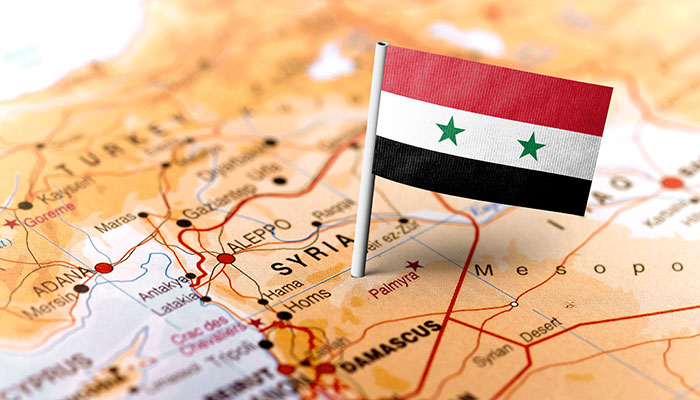


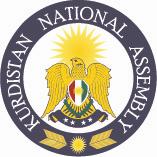 Sherkoh Abbas , President of the Kurdistan National Assembly of Syria (KURDNAS), raised in a recent
Sherkoh Abbas , President of the Kurdistan National Assembly of Syria (KURDNAS), raised in a recent 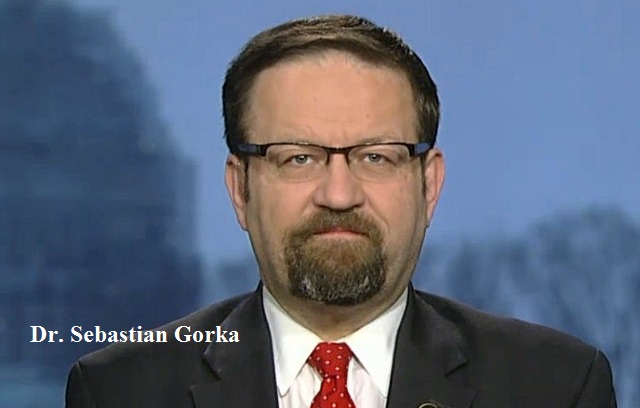

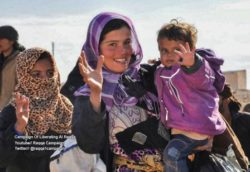
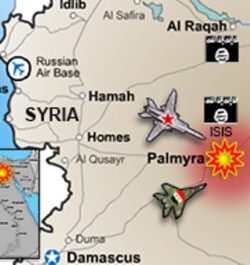 12-12-16 ARA News:
12-12-16 ARA News: 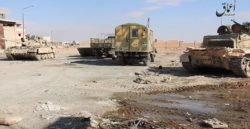

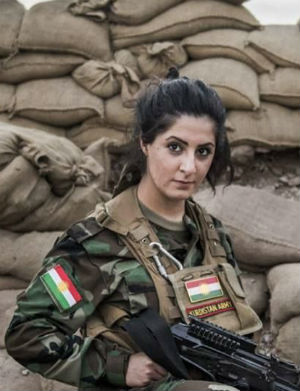
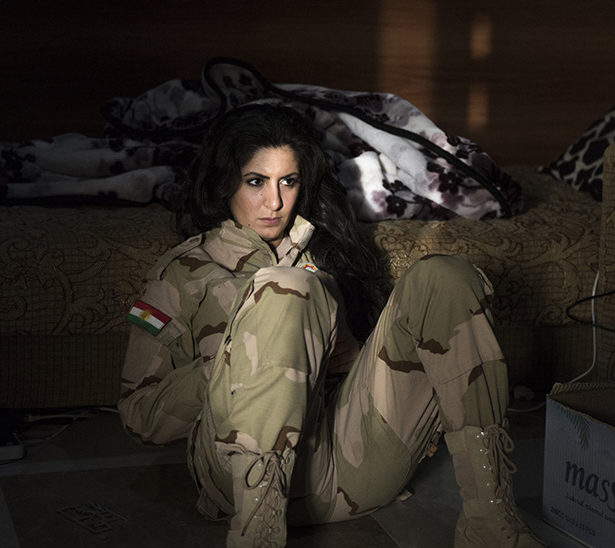
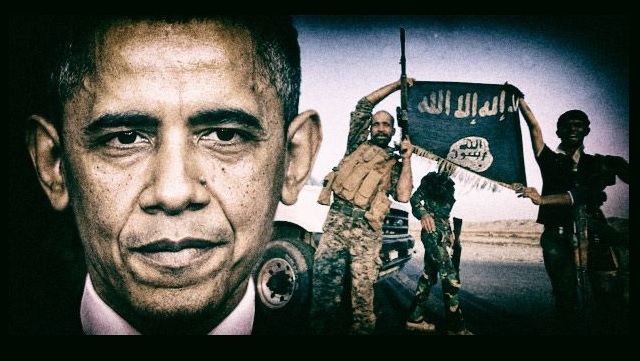
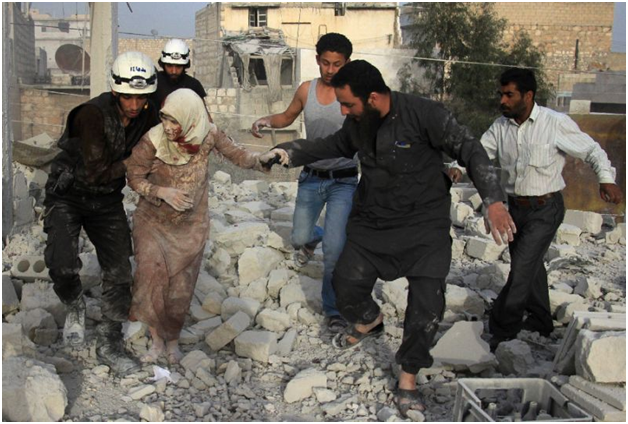
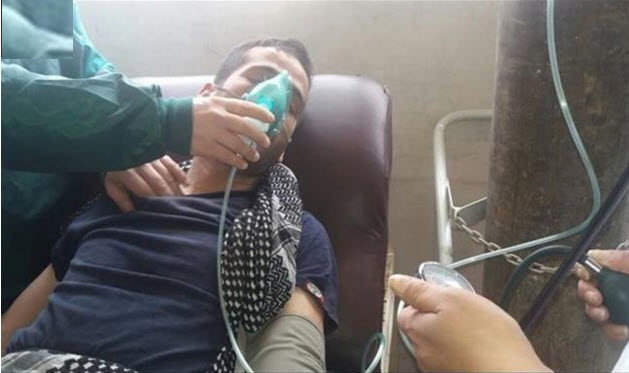
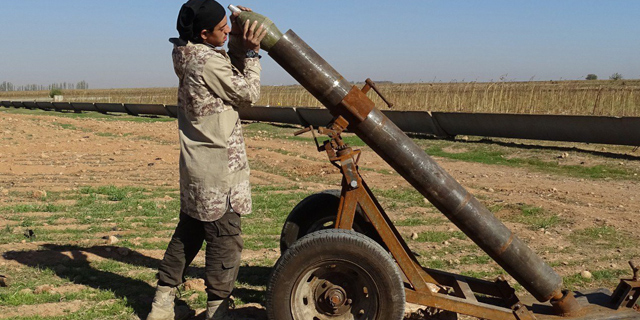
 RECOMMENDED READING
RECOMMENDED READING

